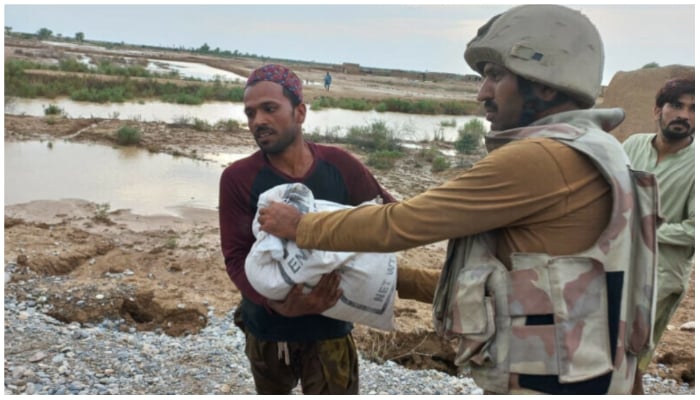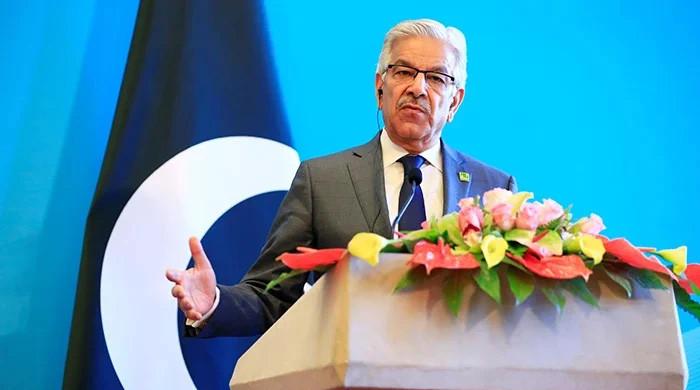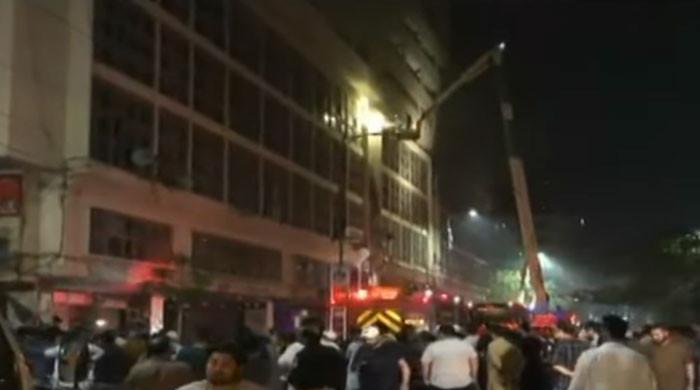Army, Frontier Corps carry on relief efforts in flood-hit Balochistan
Thirteen relief camps set up in Kohlu, Bolan, Sibi, Dera Murad Jamali, Jafarabad, Nasirabad, Sohabatpur, and Jhal Magsi districts
October 02, 2022

- Thirteen relief camps set up in Kohlu, Bolan, Sibi, Dera Murad Jamali, Jafarabad, Nasirabad, Sohabatpur, and Jhal Magsi districts.
- Camps providing flood-hit people with cooked food along with other facilities.
- Six collection points were also established in Quetta for the relief of flood victims.
Pakistan Army and Frontier Corps, Balochistan, in support of the civil administration, continue carrying out relief and rehabilitation operations in the areas hit by the devastating floods.
The Inter-Services Public Relations (ISPR), Balochistan, in a handout issued here on Sunday, said the Pakistan Army and FC were assisting the civil administration to provide relief to the flood victims.
It said that as many as 13 relief camps were working in the flood-affected areas of Kohlu, Bolan, Sibi, Dera Murad Jamali, Jafarabad, Nasirabad, Sohabatpur and Jhal Magsi districts, where flood-hit people were provided with cooked food along with other facilities.
During the last 24 hours, as many as 2,661 ration packets, 35,400 water bottles, 3,095 kilogrammes of edibles, including tea leaves, oil, rice and sugar, blankets, mosquito nets, warm clothes and hygiene kits were distributed in Bolan, Sibi, Kalat, Khuzdar, Awaran, Jafarabad, Nasirabad, Jhal Magsi, and Sahabatpur districts.
Under the supervision of the Pakistan Army and FC Balochistan, six collection points were also established in Quetta for the relief of flood victims so that timely assistance could be provided to the deserving people.
“A total of 55 free medical camps were organised by Pakistan Army, FC Balochistan, Pakistan Disaster Management Authority (PDMA) and welfare organisations during the last 24 hours to control epidemics and other diseases in the flood-affected districts, in which 4,521 patients were treated.
The ISPR handout further noted that efforts were afoot to restore the damaged infrastructure.











